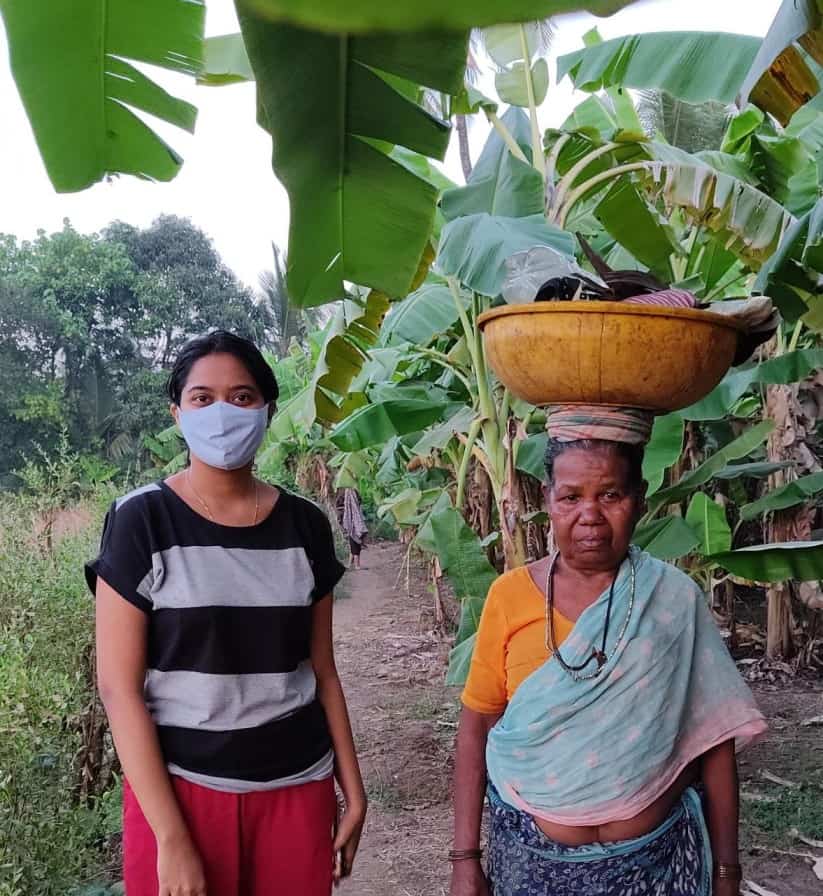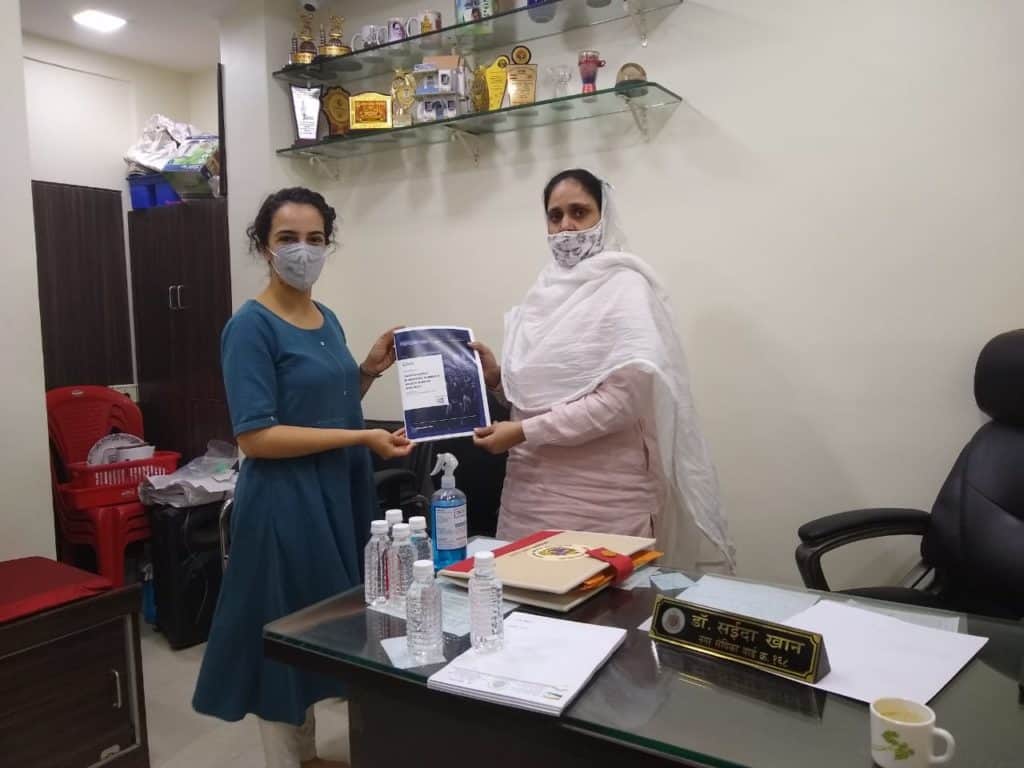Early this year, Dhanashree Panchal, a student of Mumbai’s Khalsa college, participated in a unique initiative. She went around her neighbourhood in Charkop to understand what people thought of Mumbai’s health infrastructure. “I expected COVID-19-related concerns to be on top of people’s minds,” Dhanashree says, “but people were far more worried about the city’s overall health infrastructure.”
Dhanashree is a volunteer with Civis, a city-based organisation that works towards facilitating citizen participation in national and local issues. Last month, Civis conducted an online and offline survey to gather feedback on areas they think Brihanmumbai Municipal Corporation (BMC) should prioritise while planning and budgeting for the health sector.
Volunteers like Dhanashree asked people questions through a short questionnaire in 23 of Mumbai’s 24 wards, while an online survey form was circulated across the city. Civis modelled its exercise on participatory budgeting techniques, a practice which empowers citizens to deliberate, discuss civic works, and suggest how public money should be spent.
Read more: Here’s where your money goes. An explainer on BMC’s budget

Public consultation on health
Close to 88% online respondents and 69% offline respondents surveyed by Civis mentioned that the upgradation of the overall health infrastructure in Mumbai should be an area of higher prioritisation as compared to COVID-19-related expenditure.
The on-ground and online surveys show that people see the pandemic as one of the many health challenges in the city. More than isolation and quarantine centres or Personal Protective Equipment (PPE) kits, 65% of the total responses believed that the highest resource allocation should be towards upgradation of hospitals and medical supplies. Apart from enhancing existing healthcare facilities, capacity building and training for medical workers and staff emerged as another major aspect.
Scaling citizen participation
Civis’ on-ground survey must become mandatory reading for policy makers. Volunteers collated inputs from Mumbai’s various low-income workers such as vegetable and fruit vendors, rickshaw drivers, sweepers, domestic help, security guards, among others to present a clearer picture of usage and expectations from the health infrastructure in the city.
A majority of public healthcare facilities in Mumbai is concentrated to the south of the city, forcing citizens to travel long distances to access healthcare. Civis respondents, then, cited that “accessibility” or a swift dispensation of medical treatment should be a pivotal consideration, along with “affordability” and “awareness” of government facilities and initiatives.
Awareness, in fact, was also Civis’ prime agenda behind conducting the survey. “We wanted to build awareness about the fact that there’s a budgeting exercise underway and help people become stakeholders in the process,” Antaraa Vasudev, Civis’ Founder, says.
Participatory budgeting can be an effective way to signal what should be a government’s priority area. And an exercise like that, according to Divya Pinge, Civis’ Lead Product Manager, “can help BMC and corporators understand on-ground issues, people’s lived experiences, and what is important to them from a resource allocation perspective”. It can also bring to fore smaller aspects of healthcare and wellbeing that are otherwise ignored. Investment in mental health facilities, listed among the top five priority areas for both online and offline respondents, is one such aspect.
The report, however, doesn’t explore existing lacunae in governance or social hierarchies that prevent the institutionalisation of participatory budgeting. It doesn’t elaborate how a corporator, for example, elected as a citizen’s representative, can ensure that citizens’ demands are heard and implemented.
Read more: Time to involve Corporators in Mumbai’s fight against COVID-19
During the COVID-19 pandemic, corporators were allotted a fund in addition to their annual development funds for discretionary spending. On April 20, BMC issued a notification allowing Corporators to spend Rs 10 lakh from their Corporator fund for PPE kits, sanitizers, masks, and other COVID-19 relief related materials.
As Civis released its survey only one day before the BMC budget 2020-21, its inferences remain unimplemented. But Antaraa, Civis’ Founder, hopes that their data can help inform discretionary funding like that of a Corporator. Still, it remains equally important to influence BMC’s health budget, which is prepared by the Municipal Commissioner and not Corporators and is several times the amount available for corporators.
City-wide health expenditure
On February 3, BMC unveiled its budget, pegging the current financial year’s budgetary estimate at ₹39,038.83 crore, 16.74% higher than the its Rs 33,441 crore budget for FY 2020-21. Unlike cities like Pune which have provisions for participatory budgeting and provisions to accept and incorporate citizen suggestions, BMC does not.
This year, BMC has estimated a revenue expenditure of Rs 3522 crore under the health budget and an additional Rs 1200 crore under project works. The revenue expenditure includes Rs 939.65 crore to the Health Department and several crores to the 33 general hospitals, dental hospitals and colleges BMC runs across the city. At Rs 4728 crores then, the health budget constitutes 12% of the total BMC expenditure.
This 12% must increase to 30% in accordance with the Zakaria Committee report on Augmentation of financial resources of urban local bodies, Saeeda Khan, Corporator and Member, Health Committee of BMC, points. But BMC has repeatedly failed to utilise the money it earmarks for health infrastructure and services. From 2014-15 to 2016-17, around 34% of the Health budget remained unutilised, according to a report by city-based non-profit Praja.

Mumbai falters on World Health Organisation (WHO) norms on all fronts: from acceptable doctor-patient ratios to availability of beds. Saeeda acknowledges the shortcomings and says that BMC needs a balanced approach. This means paying attention to paucities at all levels: from doctors to equipment.
“BMC is trying to upgrade its peripheral hospitals or primary healthcare centres to benefit people at their doorsteps, whereas the major hospitals like KEM or Nair can work as super specialty hospitals” she says. To tackle the doctor deficiency, Saeeda points that BMC has also started a College Of Physicians and Surgeons Of Mumbai, that imparts autonomous postgraduate training to doctors.
But these efforts have been piecemeal, proceeding only step-by-step and testing both public resources and patience. Substantial impact would need prudence: both at the planning and implementation level.
Also read: